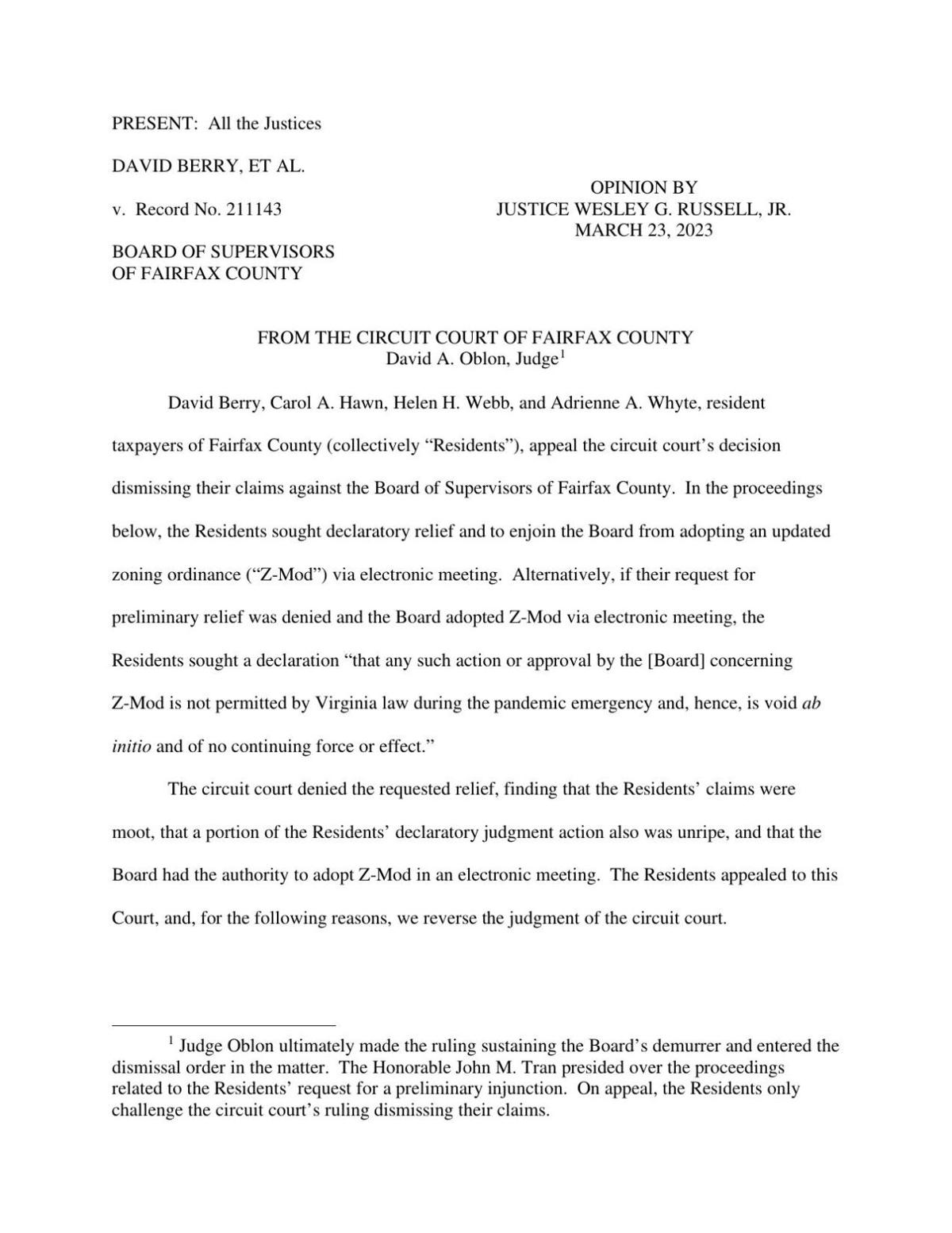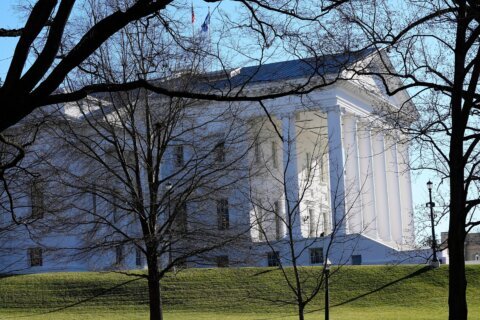This article was republished with permission from WTOP’s news partner InsideNoVa.com. Sign up for InsideNoVa.com’s free email subscription today.
This article was written by WTOP’s news partner InsideNoVa.com and republished with permission. Sign up for InsideNoVa.com’s free email subscription today.
The Virginia Supreme Court has voided a massive zoning modernization plan approved by the Fairfax County Board of Supervisors in 2021 because the board’s approval occurred during a virtual meeting.
The court’s ruling, issued Thursday, could call into question scores of routine decisions made by local governing bodies during the first 15 months of the COVID-19 pandemic. Many of those bodies met virtually, rather than in person, as is required by Virginia’s Freedom of Information Act.
Four Fairfax County residents — David Berry, Carol A. Hawn, Helen H. Webb and Adrienne A. Whyte — challenged the Board of Supervisors’ decision in March 2021 to update and modernize the county’s zoning ordinance, a process known as zMOD. The new ordinance, which replaced one that had been in place since 1978, became effective July 1 of that year.
However, in an opinion written by Justice Wesley G. Russell Jr., the Supreme Court ruled that the board did not have the authority to approve the zoning rewrite in a virtual meeting. The ruling overturned a decision of Fairfax Circuit Court Judge David A. Oblon that dismissed the residents’ complaint.
The Supreme Court ruled that Fairfax County’s “Continuity Ordinance,” adopted in the early days of the pandemic, did not authorize the board to consider and adopt a revised zoning ordinance in an electronic meeting. It also said that the General Assembly, which tried to address the issue and allow virtual meetings in its 2020 budget act, also did not provide enough leeway to supplant the state’s open meeting requirements and allow the board to adopt the zoning modification at meetings conducted by electronic means.
The Supreme Court therefore reversed the Circuit Court decision and declared the board’s approval of zMOD void.
“By failing to hold the meetings at which Z-Mod was considered and ultimately adopted in compliance with VFOIA’s [Virginia Freedom of Information Act] open meeting requirements, the Board’s actions prevented the public from participating in the manner required by VFOIA, and thus, potentially limited public participation and input into the process,” Russell wrote in the opinion.
He compared the case to one in which a local governing body fails to provide proper public notice of a zoning ordinance before approving it.
The budget amendment approved by the legislature in 2020 allowed local governing bodies to meet virtually, rather than in person, if the purpose of meeting was to discuss or transact the business statutorily required or necessary to continue operations of the public body and the discharge of its lawful purposes, duties and responsibilities.
The Supreme Court based its ruling on the use of the word “and” in that sentence. It noted rewriting a 40-year-old zoning ordinance was not “necessary to continue operations.”
“It is not a time-sensitive matter, and its adoption is not and was not necessary to allow the County to continue operations,” Russell wrote. “The phrase ‘necessary to continue operations’ in the budget language does not encompass all that the Board may lawfully do, and thus, the budget language cannot be construed as a wholesale license to ignore VFOIA’s open meeting requirements in conducting any and all business that the Board might wish to conduct.”
In 2021, the General Assembly enacted separate legislation that allowed for virtual meetings during the pandemic. It used essentially the same language as the budget amendment but changed the word “and” to “or.” That went into effect July 1, 2021, after the Fairfax zoning modernization was approved.
Megan Rhyne, executive director of the Virginia Coalition for Open Government, said Thursday’s ruling could have major implications.
“If a locality had a continuity ordinance that was similar to Fairfax’s that limited actions to those that were somehow time-sensitive but they nonetheless voted on measures that were NOT time-sensitive in an all-electronic meeting during the period between the pandemic shut-down in March 2020 and the July 2021 legislation, there could be a massive reckoning,” she wrote in a newsletter.








